High taxes make UK unattractive place to invest, says Santander boss
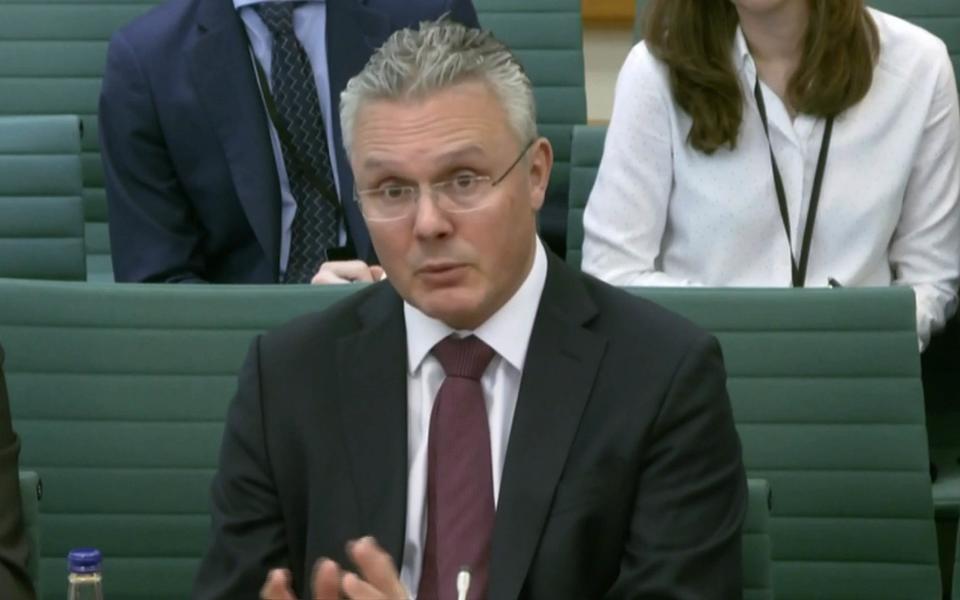
Santander’s UK boss has warned that high taxes are making Britain an unattractive place to invest, amid growing pressure on the Chancellor to cut the burden on households and businesses.
Mike Regnier, chief executive of Santander UK, told MPs that other countries were drawing in money that would otherwise be invested in Britain because of more favourable regulation and lower taxes elsewhere.
He told the Treasury Select Committee: “Our tax rates are higher than many of the other countries that we, as a UK business, are competing with.
“Even in a really good year, the level of returns that we’re able to make in the UK aren’t as high as the shareholders of our parent would expect.”
The comments came as Barclays prepared to cut hundreds of investment banking jobs as part of efforts to cut costs and boost financial returns of its investors. A spokesman for the bank told Bloomberg, which reported the move: “We regularly review our talent pool.”
Santander UK is part of an international banking group based in Spain and its parent company chooses where to invest based on where the most competitive regulatory and tax environments are, Mr Regnier said.
He said: “The decisions that our group makes on a weekly basis almost is: where am I better putting my next euro of capital? Is it in the UK? Should I put it in Brazil, should I put it in Mexico, should I put it in the US? Where are we going to get the most return on that extra euro of capital?
“The cost of fraud is borne by banks in the UK - that is quite unusual globally - and as a result of all of those things when you look at it, if I were the group I wouldn’t be necessarily putting a lot more capital into the UK, I would be putting it into other places.”
Business investment is expected to fall by more than 5pc this year, according to the Office for Budget Responsibility (OBR), before recovering only slightly by 1.4pc in 2025.
A lack of investment has been a persistent issue in Britain for years that has been blamed for holding back growth.
Business leaders have repeatedly warned that high taxes are hampering investment. Last year BT’s finance chief Simon Lowth warned that the rising burden risked sending Britain in a “drastically anti-investment direction”.
Corporation tax in Britain is 25pc, compared to 21pc in the US. The headline rate in the UK rose from 19pc to 25pc last year, the biggest increase in the levy’s history.
Banks like Santander also face a slew of other levies. They must pay a profit surcharge, which adds another 3pc on top of corporation tax, and the bank levy, which is a tax based on the size of their UK operations.
The combined levies add an estimated £2.5bn to the sector’s tax bill each year, according to the OBR.
While the burden weighs heavily on the banking sector, taxes across the economy are high. The OBR predicts the tax burden will rise to 37.1pc of GDP by 2028-29, the highest level since 1948.
In his Budget earlier this month, Jeremy Hunt said he hoped to encourage business investment by expanding the “full expensing” scheme to include leased equipment, effectively cutting taxes on companies’ outlays.
The Chancellor also announced plans to push pension funds to invest more in UK businesses and announced the establishment of a British ISA, which will allow savers to invest £5,000 into British-listed companies tax free.
Mr Regnier appeared in front of MPs alongside other bank chiefs Vim Maru of Barclays, Charlie Nunn of Lloyds and Paul Thwaite of NatWest.
The executives urged lawmakers to force tech companies and telecoms operators to help lenders tackle the wave of fraud hitting the UK.
Mr Thwaite said: “Banks can only do so much but we really need to get a whole variety of sectors involved to address this.”
Mr Nunn added: “There has been progress, some telecommunications specifically and some tech firms, others are behind.
“But it is not enough. If you look at the growth in fraud that we are seeing, we really need to work together and have more tools to work with those organisations to help us manage fraud.”
07:41 PM GMT
That’s all for today...
Thanks for joining us. We’ll be back in the morning but I’ll leave you with some of our latest business stories elsewhere on our pages:
Shoppers sue Hermes for refusing to sell them Birkin handbags
Biden unveils sweeping crackdown on petrol cars in push to go electric
Deloitte quits as Very Group auditor in fresh blow to Barclay family
06:19 PM GMT
US accuses Chinese residents of stealing Tesla technology
US prosecutors have charged two former Tesla employees based in China with stealing the company’s battery technology and attempting to sell it. James Titcomb reports:
Court documents said the two men, Klaus Pflugbeil and Yilong Shao, had stolen secrets from a “US-based leading manufacturer of battery-powered electric vehicles and battery energy systems”, a description that matches Tesla.
Both men worked for a Canadian company acquired by Tesla in 2019 and later lived in China. Mr Pflugbeil was arrested in New York on Tuesday after meeting undercover agents posing as potential buyers of the technology. Mr Shao’s whereabouts are unknown.
Court documents said the two men, who had since set up a company in China, had tried to sell Tesla’s technology online through social media posts.
The individuals had attempted to sell technology related to making batteries, including drawings of battery assembly components. Prosecutors said Tesla had spent at least $13m (£10m) developing the technology they tried to sell.
06:17 PM GMT
Too early to cut interest rates, says Federal Reserve
The US Federal Reserve has signalled that it needs more evidence that inflation is falling before it cuts interest rates.
Policymakers voted to hold borrowing costs at a 23-year-high of 5.25pc to 5.5pc.
Forecasts published alongside the decision show the Fed still expects to cut interest rates three times this year.
However, in a statement issued on Wednesday evening, rate-setters at the world’s largest central bank reiterated that they needed more evidence that inflation was tamed to start bringing down rates.
They said: “The Committee does not expect it will be appropriate to reduce the target range until it has gained greater confidence that inflation is moving sustainably toward 2pc.”
US inflation edged up to 3.2pc in February from 3.1pc the previous month.
The Fed’s latest decision comes amid mounting speculation over when the Bank of England will deliver its first cut.
The Bank’s panel of rate-setters are expected to hold interest rates at 5.25pc on Thursday even as inflation in the UK has fallen to its lowest level in nearly two and a half years.
Analysts are expecting that the Bank of England, the Fed and the European Central Bank will all start to bring down borrowing costs in June.
05:59 PM GMT
Boeing warns it is burning through cash faster than expected after 737 Max crisis
Boeing said on Wednesday it would burn more cash than previously expected as it constrains 737 production to improve quality amid a worsening crisis at the US planemaker.
Finance chief Brian West said Boeing would produce fewer than a maximum of 38 of its 737 aircraft allowed monthly under a limit from regulators.
He said: “For years, we prioritised the movement of the airplane through the factory over getting it done right, and that’s got to change.”
He added that Boeing’s cash burn in the first quarter will be somewhere between $4bn and $4.5bn, “higher than we originally planned back in January.”
Margins at the commercial aeroplanes business would be “more like negative 20pc” in the first quarter, he said, in part due to customer compensation for delivery delays.
05:47 PM GMT
Investec implicated in motor finance misselling scandal
Investec has told investors that it faces a “potential impact” from the Financial Conduct Authority’s review into commissions paid in the motor finance industry.
The investment bank entered the motor finance market in June 2015 after buying Mann Island Finance.
Despite this, Investec said its profits for the year to the end of March would still rise to between £866.9m and £909.6m, up from £818.7m the year before.
Fani Titi, chief executive, said: “As you can see, the results are quite strong even after factoring in a provision.
“We remain comfortable that we were compliant, but clearly there is an investigation on the go. And we have looked at the number of different scenarios of potential outcomes, and, on a prudent basis, we have made a provision.”
05:15 PM GMT
Sell-off in luxury stocks amid Gucci woes
Europe’s luxury goods companies had a difficult day in trading after the owner of Gucci, French group Kering, warned of a sales drop in Asia. Kering shares tumbled 11.9pc.
Combined with a profit warning from Burberry in January, the high-end sector is grappling with a worsening slowdown in demand for luxury goods.
In a sector-wide reaction, other luxury stocks such as LVMH, Burberry, Richemont and Christian Dior dropped between 1.6pc and 3.2pc.
Stuart Cole, chief economist at Equiti Capital, said:
The Kering slump is a warning that the slowdown being seen in China is having a real impact around the globe.
The post-Covid Chinese recovery has not really happened and clearly Chinese consumers are now cutting back on luxury items as they tighten their belts.

04:57 PM GMT
Footsie flat
The FTSE 100 closed down 0.01pc today. The biggest riser was investment company St James’s Place, up 4.52pc, followed by aerospace supplier Melrose, up 4.06pc. The biggest faller was Prudential, down 4.53pc, followed by Burberry, down 3.29pc.
Meanwhile, the FTSE 250 close up 0.27pc. The biggest riser was City firm Close Brothers, up 8.81pc, followed by Johnson Matthey, up 7.76pc. The biggest faller was mining company Ferrexpo, down 9.34pc, followed by Trustpilot, down 7.69pc.
04:51 PM GMT
US shares drift as markets await interest rate steer
American stocks drifted in trading on Wall Street today as markets wait for the US Federal Reserve’s latest announcement on interest rate policy and some guidance on the timing and size of potential rate cuts later this year.
The S&P 500 is up 0.3pc, the Dow Jones Industrial Average of 30 leading companies is up 0.1pc, and the Nasdaq Composite index is unchanged.
Meanwhile, US Treasury yields are holding relatively steady in the bond market.
The Fed began its latest meeting on interest rates on Tuesday and will announce its decision later today.
The widespread expectation is for the central bank to leave its main interest rate alone at a two-decade high.
Investors are hoping the Fed will indicate it still expects to cut rates three times later this year, as it hinted a few months ago.
Stocks have been rallying to records amid hopes that the Fed is moving closer to cutting interest rates, which would relieve pressure on the economy and financial system.
Wall Street is betting that the central bank will begin cutting its benchmark interest rate at its meeting in June.
The central bank started raising interest rates in 2022 in an effort to tame inflation back to its target of 2pc.
Inflation has broadly cooled since then, with consumer prices falling to a rate of 3.2pc in February from as high as 9.1pc in the middle of 2022.
At the same time, consumers kept spending and the economy grew, despite worries that such severe interest rate increases could cause a recession.
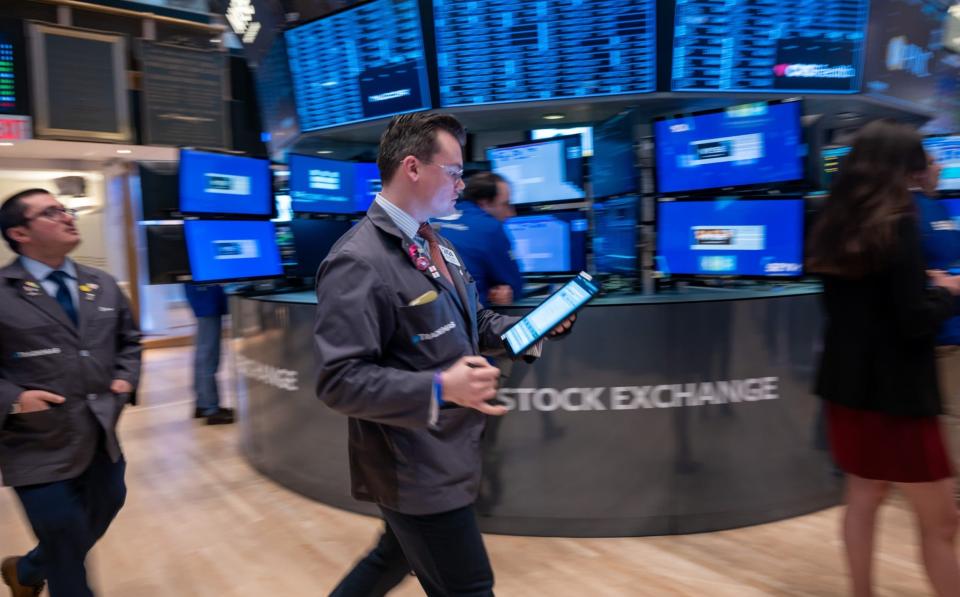
04:35 PM GMT
EasyJet could win from German-Italian airline tie-up
EasyJet could expand the flights it offers to Milan as the European Commission investigates a tie-up between Germany’s Lufthansa and Italy’s ITA Airways.
Easyjet said today that is is in talks with the European Commission about taking over slots at Milan’s Linate airport.
The German carrier is seeking a 41pc stake in the state-owned Italian rival for €325m (£277m) as part of a capital increase and expects a statement of objections from the Commission setting out concerns this month.
EasyJet’s Chief Executive Johan Lundgren said:
I’ve made no secret of the fact that we would love to increase our presence at Linate.
And we think that would make absolute sense, so that is something that we are discussing with the Commission.

04:18 PM GMT
Saudi Arabia in talks to create $40bn AI fund
Saudi Arabia’s Public Investment Fund is reportedly in talks to create a $40bn investment fund that could become the world’s largest investor in artificial intelligence businesses.
The New York Times reported that the Saudis had been speaking with Silicon Valley venture capital firm Andreessen Horowitz and other financiers on a potential partnership during recent weeks.
Marc Andreessen, the co-founder of Andreessen Horowitz, shot to fame in the 1990s when he created the first widely used graphical web browser, Mosaic, before setting up Netscape.
04:06 PM GMT
France hands Google landmark €250m fine for AI chatbot breach
Google has been fined €250m (£214m) by French regulators for using news articles to train its chatbot without publishers’ permission. James Titcomb has the details:
The Autorité de la Concurrence, the French competition watchdog, said it had fined the search giant for breaking a 2022 pledge to negotiate with news publishers over using their material.
It is believed to be the first major fine related to AI companies training chatbots by scraping material from around the web.
Google launched its Bard chatbot last year, recently renaming it Gemini, with the system trained on millions of websites.
The fine comes amid a spate of lawsuits against tech companies from publishers and artists, claiming the businesses are stealing their content to develop the chatbots and depriving them of crucial web traffic in the process.
“The Autorité found in particular that Bard had used content from press agencies and publishers to train its foundation model, without notifying either them or the Autorité,” the watchdog said.
It added that the company had failed to provide a way for publishers to opt out of their content being used to train Google’s AI system, meaning publishers were not able to negotiate with the company.
Responding to the decision, Google called the fine “disproportionate” but said it had agreed to pay it to draw a line under the dispute.

04:01 PM GMT
Johnson Matthey sells medical parts division to private equity for £550m
Johnson Matthey has spun off its medical parts division, selling the unit to a private equity firm for £550m. Hannah Boland has the details:
The chemicals giant said the deal with Montagu Private Equity marked a “significant milestone” in its efforts to slim down operations.
Johnson Matthey makes the majority of its revenues from clean-air technology, such as pollution filters for cars.
However, it also has a “hydrogen technologies” division which makes components for hydrogen fuel cells and catalysts.
Analysts at JP Morgan said the £550m was a “better than expected” price, with shares in Johnson Matthey up by nearly 10pc following Wednesday’s agreement.
Johnson Matthey is expected to return £250m from the sale to shareholders via a buyback programme and would use the rest to pay down debt and fund other activities.
The surge in the company’s value comes as the company dropped out of the FTSE 100 last year after its share price came under pressure from a fall in precious metals prices.
In November, it revealed profits had more than halved in the six months to September 30 compared to the same period a year earlier, plunging to £82m from £188m a year earlier.
The company has recently been pursuing a major turnaround, slashing costs by closing manufacturing sites and axing jobs.
03:52 PM GMT
Intel grabs £15bn in grants and loans from Biden for US-made chips
President Biden’s administration has said it is awarding chipmaking giant Intel nearly $20bn in grants and loans, supercharging the company’s American semiconductor chip output and marking the US government’s largest outlay to subsidise leading-edge chip production.
President Biden is understood to be announcing an agreement for $8.5bn in grants and up to $11bn in loans for Intel in Arizona today, where some of the funding to be used to build two new factories and modernise an existing one.
Commerce Secretary Gina Raimondo called it a huge deal and one of the largest investments ever in US semiconductor manufacturing.
“It means leading-edge semiconductors made in the United States of America,” she said on Tuesday, noting that the administration hopes to increase the United States’ share of leading-edge chip production from 0pc to 20pc by 2030 through the subsidy program.
The historic outlay shows the Biden administration is betting big on Intel as part of the 2022 CHIPS and Science Act. The goal of the CHIPS Act is to reduce reliance on China and Taiwan, as the share of global semiconductor manufacturing capacity in the US has fallen from 37pc in 1990 to 12pc in 2020, according to the US Semiconductor Industry Association.
Last year, Britain’s biggest microchip factory was sold to a US bidder, Vishay Intertechnology, after a Chinese-backed takeover was blocked on national security grounds.
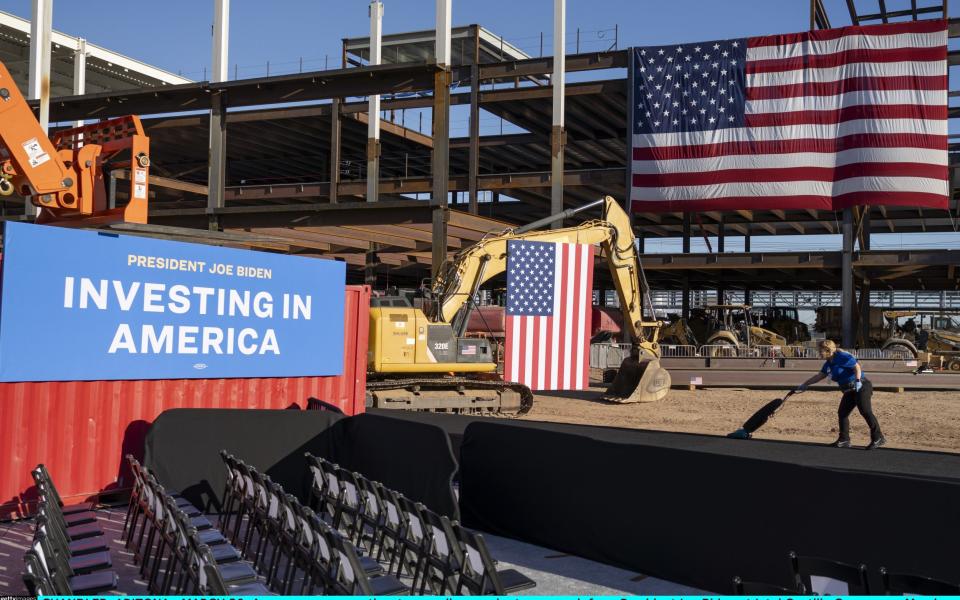
03:34 PM GMT
Britain risks becoming a ‘dumping ground’ for Uyghur-made goods, MPs warn
Britain risks becoming a “dumping ground” for Uyghur-made goods, MPs have warned, amid concerns over upcoming solar developments with alleged links to forced labour. Hannah Boland reports:
MPs including Alicia Kearns, the chairman of the foreign affairs select committee, and Liam Byrne, the chairman of the business and trade select committee, urged the Government to bring in new controls to stop imports of products made wholly or partially using forced labour.
Ms Kearns warned that the UK was “fast becoming a global outlier” on its failure to protect the market from Uyghur forced labour, with the US and EU taking action on this.
She said: “The Government must take note and act. The solar industry has a well-documented history of supply chain links to Uyghur forced labour and we cannot tolerate our green transition coming off the back of slavery and genocide.”
It comes amid concerns over new UK solar developments going through the planning process, which are being led by companies with alleged links to benefitting from Uyghur forced labour.
Ms Kearns said: “We have the evidence, our global allies have shown there are solutions, now we need the Government to match its rhetoric on Xinjiang and clean up this industry.”
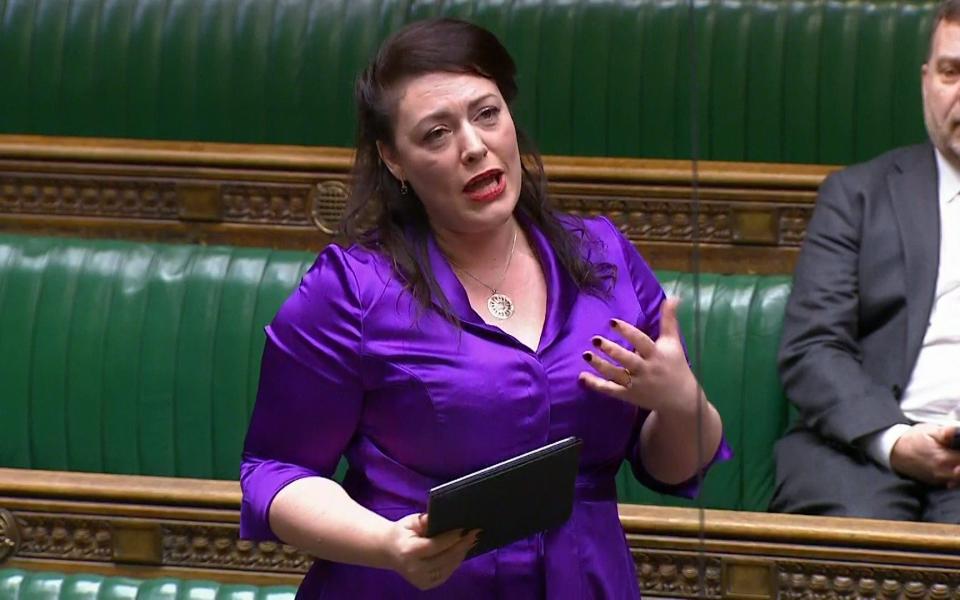
03:33 PM GMT
Handing over
I’m heading off now but Alex Singleton will make sure you have the latest on the US Federal Reserve’s interest rate decision later.
Hopefully you are able to enjoy some sunshine as today marks the first official day of spring - or do some spring cleaning.
Bosses at the London Eye have ordered a fresh coat of paint on the attraction as the tourism season begins.
It requires an estimated 5,000 litres to cover the entirety of the 135m-high observation wheel.
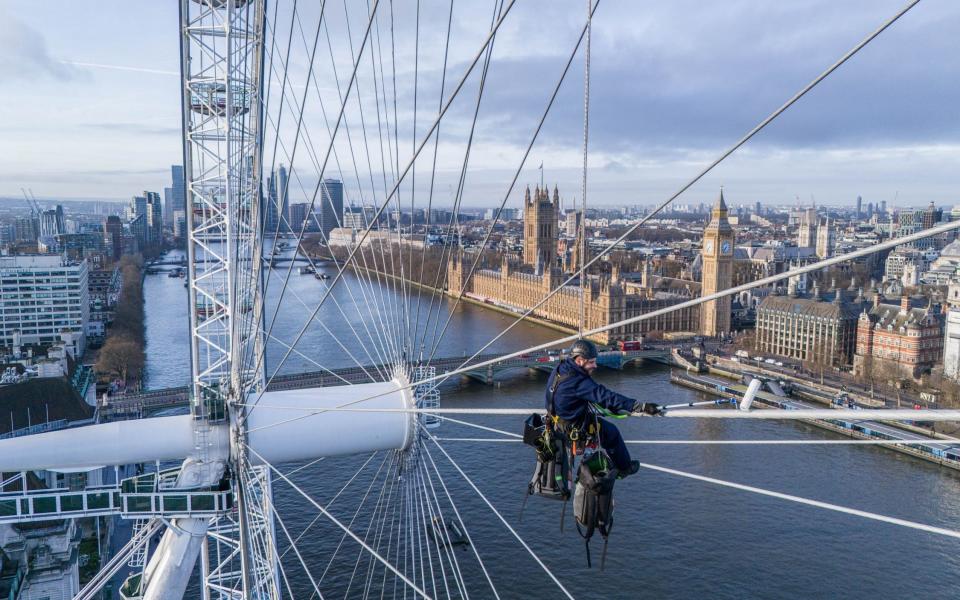
03:18 PM GMT
Billions wiped off Gucci owner as young shoppers feel the pinch
More than €7bn (£6bn) was wiped off the value of luxury giant Kering after it warned of a slump in sales at its biggest brand, Gucci.
Our retail editor Hannah Boland has the latest:
Shares in Kering fell as much as 14pc on Wednesday, dragging rival luxury stocks including Burberry and LVMH lower as investors took fright at signs of lower demand for high-end clothing and handbags.
Kering, which also owns Saint Laurent, Balenciaga and Alexander McQueen, said it expected total sales to fall 10pc for the first three months of the year compared to last year.
It said this was largely driven by a “steeper sales drop” at Gucci, with demand in the Asia-Pacific region particularly disappointing.
Read how Kering has been under pressure to improve the performance of Gucci.
02:59 PM GMT
O’Leary to quiz Boeing bosses about aircraft delays
Ryanair boss Michael O’Leary will meet with senior Boeing executives today in Dublin to discuss prolonged delays in plane deliveries as the crisis at the US planemaker deepens.
Mr O’Leary said he will also discuss the certification of Boeing’s 737 MAX 10 aircraft and ongoing issues with oversight following the January 5 mid-air blowout of a panel on a new Alaska Airlines MAX 9.
The meeting will be with the “highest levels of management” at Boeing, he told Reuters.
He said:
We are working closely with Boeing.
Boeing are still producing great aircraft, but there’s no doubt in our mind that on the shop floor, the systems and the quality control in Seattle need to be improved.
He said the budget airline, Boeing’s largest European customer, has regular meetings with its plane supplier and believes things will start to improve as regulators ramp up scrutiny of the company.
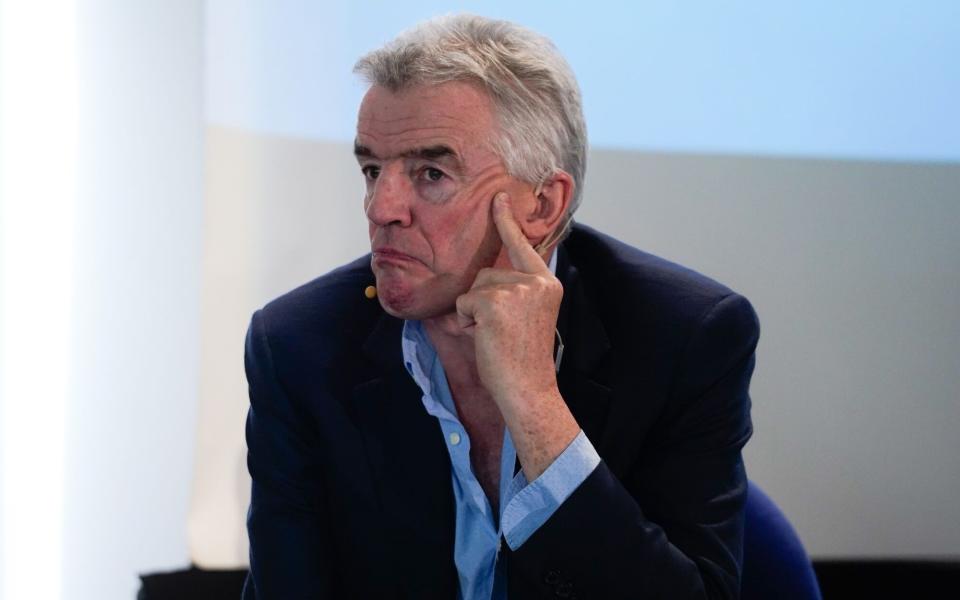
02:35 PM GMT
Pound hits new eight-year high against the yen
The pound hit a fresh eight-and-a-half-year high versus the yen as the Bank of Japan decision to exit its negative interest rates policy left higher-yielding currencies such as the pound appealing versus Japanese assets.
However, sterling fell against a strengthening dollar as investors await the outcome of the Federal Reserve policy meeting.
The pound was down 0.2pc versus the dollar at around $1.27, while the euro was flat at 85p.
Against the yen, sterling hit a fresh high of 192.84 and was last up 0.4pc.
Markets slightly increased their bets on interest rate cuts by the Bank of England on Thursday, pricing a roughly 63pc chance of a first move in June from 58pc before the data.
Analysts expect the Federal Reserve to keep rates unchanged after its meeting at 6pm UK time, and they will focus on signals about the timing and extent of any easing this year.
Ruben Segura-Cayuela, European economist at Bank of America, said:
We expect no changes to the guidance. The minutes should reflect the continued need for more confidence but smaller tail risks.
The emphasis from here is likely to still be on sticky services inflation, ongoing and upcoming wage negotiations, and the pass-through of the upcoming increase in the national living wage.
02:08 PM GMT
We urge union to continue discussions ahead of Tube strikes, says TfL
After the Aslef union announced new strikes on London Underground, a Transport for London spokesman said:
We have been in long-term discussions with our trade union colleagues on how to modernise procedures and processes on London Underground to improve the experience both for staff and customers.
We have no plans to impose these changes and have committed to no one losing their job as part of these changes, and we have engaged with our unions to demonstrate that no change will be made that compromises our steadfast commitment to safety on the Tube network.
We urge Aslef to continue discussions with us so that disruption for Londoners can be averted.
02:05 PM GMT
Become an MP if you think you can do a better job, Hunt tells James Dyson
Jeremy Hunt has told entrepreneur Sir James Dyson to run for election himself if he wants to set government policy.
Our deputy economic editor Tim Wallace has the latest:
A clash between the Chancellor and one of Britain’s most high-profile businessmen occurred during a meeting at No 11 Downing Street last week, which was arranged to discuss research and development tax relief.
While insisting that the meeting was “perfectly courteous”, a Whitehall source said: “No voices were raised but Jeremy just pointed out that as someone who used to run his own business, he knows that changing things in the public sector is more complex than the private sector and so maybe Sir James should give it a try and find out for himself.”
The dispute, which was first reported by the Financial Times, took place after what was reportedly an “awful meeting”.
Read how Sir James has criticised Government policy.
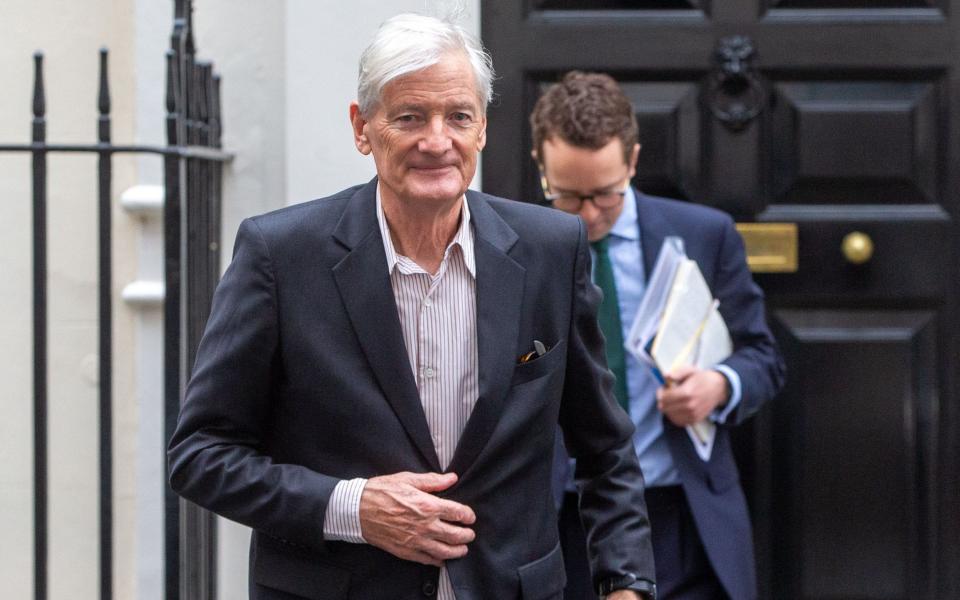
01:55 PM GMT
US markets fall ahead of interest rate decision
Wall Street are eased lower in early trading as markets wait for the Federal Reserve’s latest announcement on interest rate policy.
The S&P 500, Dow Jones Industrial Average and Nasdaq Composite were all down about 0.1pc.
Treasury yields held relatively steady in the bond market.
The Fed will announce its decision at 6pm UK time. The widespread expectation is for it to leave its main interest rate alone at a two-decade high, but investors are hoping it will indicate it still expects to cut rates three times later this year, as it hinted a few months ago.
01:30 PM GMT
High taxes make UK unattractive place to invest, says Santander boss
The UK head of Santander has said he would not be “putting a lot more capital into the UK” if he was his bosses in Spain.
Mike Regnier told the Treasury Select Committee: “Even in a really good year, the level of returns that we’re able to make in the UK aren’t as high as the shareholders of our parent would expect.”
He added:
In our case, Santander Group operates in a number of geographies around the world, and equity and capital is pretty fungible.
So the decisions that our group makes on a weekly basis, almost, is ‘where am I best off putting my euro of capital? Is it in the UK? Should I put it in Brazil? Should I put it in Mexico, should I put it in the US? Where are we going to get the most return on that extra euro of capital?’
And at the moment, certainly based on the competitive nature of the UK, the fact that our tax rates are higher than many of the other countries that we as a UK business are competing with for internal capital within our group, the cost of fraud is borne by banks in the UK, that is quite unusual globally.
And as a result of all of those things, when you look at it, if I were the group I wouldn’t be necessarily putting a lot more capital into the UK, I’d be putting it in other places.
12:31 PM GMT
Banks admit increase in account closures - but insist not all are debanking
Some of the UK’s biggest banks have said they closed more accounts last year than in 2022, but that reputational concerns were behind a small minority of forced closures.
NatWest, Santander and Barclays said they had been running an extensive programme to update customer information, which has resulted in a wave of closures of inactive or dormant accounts.
NatWest’s boss Paul Thwaite told MPs the majority of its closures are for fraud or financial crime reasons and that an “absolute minority” involve concerns about the customer’s reputation.
Barclays UK chief executive Vim Maru said: “We would not be closing accounts based on political beliefs and protected characteristics.”
The issue of bank account closures was brought into the mainstream last year following the closure Nigel Farage’s Coutts bank account last year, in a scandal which saw the departure of former chief executive Dame Alison Rose.

12:22 PM GMT
Mortgage rates tumble after surprise inflation fall
Mortgage lenders are cutting rates as falling inflation raises hopes that the Bank Rate will come down faster than expected this year.
Money reporter Ruby Hinchliffe has the latest:
NatWest has already announced that from Thursday it will cut remortgage deals by up to 0.24 percentage points, and tracker mortgages by up to 0.40 percentage points.
Swap rates – the main pricing mechanism for fixed mortgages – dipped this morning as headline inflation fell to 3.4pc, its lowest level since September 2021.
Experts say the drop on Wednesday has given lenders more headroom to price products downwards and ease affordability pressures on borrowers.
This is despite markets betting on the Bank of England holding the Bank Rate at 5.25pc on Thursday.
Read how today’s fall has “increased expectations of lower mortgage rates”.
12:05 PM GMT
Britain’s oldest brewer says inflation ‘at last’ beginning to ease
Brewer and pub group Shepherd Neame has reported record high sales as it said inflation was “at last” beginning to ease for under-pressure companies.
Britain’s oldest brewer, founded in 1698, said demand had been particularly strong in London with city centre workers returning to offices.
Revenues for the six months to December reached a record high of £89m, about 4pc more than the same period a year ago.
Christmas trading was “exceptional”, said chief executive Jonathan Neame, “as consumers celebrated their first uninterrupted Christmas since 2019”, prior to the pandemic.
It was affected by just six days of rail strikes during the period, compared with a longer period of disruption in the prior year.
Mr Neame said: “Whilst the cost-of-living crisis is still squeezing consumer pockets, hospitality has fared better than high street retail.”
He said pubs have generally been performing better than casual dining, amid restaurant groups feeling the impact of consumers making cut-backs to their spending.
Prices of food, raw materials and energy are still around 10pc higher than the previous year, but have been beginning to stabilise, the company said.
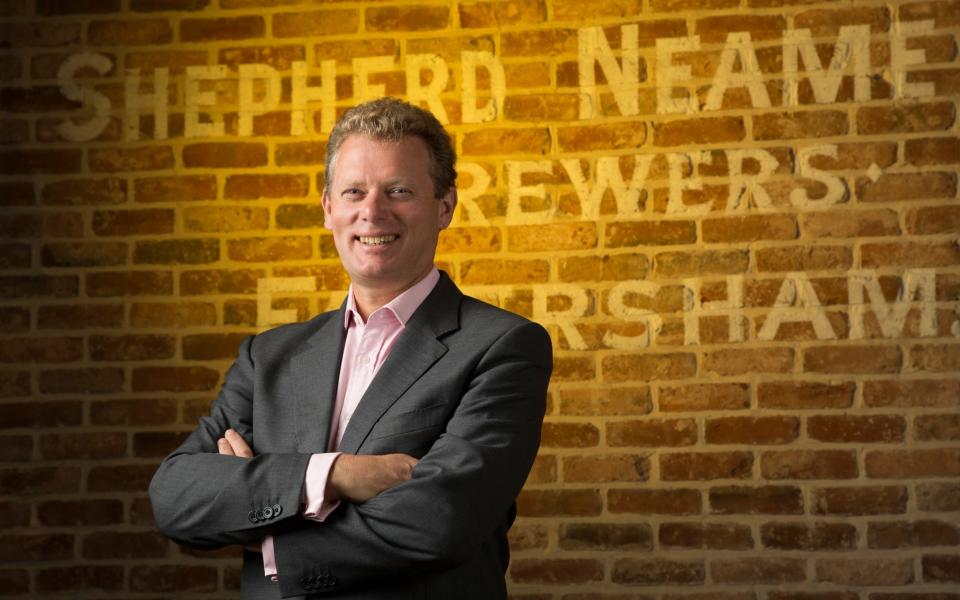
11:48 AM GMT
Train drivers announce new strikes
Train drivers at 16 rail companies are to stage a fresh wave of strikes in a long-running dispute over pay, threatening more travel chaos for passengers across the country.
Members of Aslef will hold a rolling programme of one-day walkouts between April 5 and 8, coupled with a six-day ban on overtime.
The union said it wanted to increase the pressure on the “intransigent” train companies and the “tone-deaf” government following a series of strikes stretching back 20 months.
Train drivers have now not had a pay rise for five years, since April 2019, said Aslef.
Drivers will strike on Friday, April 5 at Avanti West Coast, East Midlands Railway, West Midlands Trains, and CrossCountry.
They will walk out on Saturday April 6 at Chiltern, GWR, LNER, Northern, and TransPennine.
Strikes wil take place on Monday April 8 at c2c, Greater Anglia, GTR Great Northern Thameslink, Southeastern, Southern/Gatwick Express, South Western Railway main line and depot drivers, and SWR Island Line.
Members will also refuse to work their rest days from Thursday April 4 to Saturday April 6 and on Monday and Tuesday, April 8 and 9.
11:28 AM GMT
‘Only so much’ banks can do to prevent fraud, says NatWest boss
The boss of NatWest has said there is “only so much” banks can do to prevent fraud, as some of the UK’s biggest lenders said more needs to be done across different sectors to tackle the issue.
Paul Thwaite told a group of MPs during a Treasury Committee session that more than 80pc of fraud is initiated on social media platforms.
He said: “Banks can only do so much but we really need to get a whole variety of sectors involved to address this.”
Charlie Nunn, Lloyds’ chief executive, said preventing fraud is more important than reimbursing victims. He said:
There has been progress, some telecommunications specifically and some tech firms, others are behind.
But it is not enough. If you look at the growth in fraud that we are seeing, we really need to work together and have more tools to work with those organisations to help us manage fraud.
11:02 AM GMT
Underground workers to go strike
London Underground drivers are to stage two 24-hour strikes in a long-running dispute over terms and conditions.
Members of Aslef will walk out on April 8 and May 4, threatening travel misery across the capital.
Finn Brennan, the union’s organiser for the Tube, said the company had failed to give assurances that changes to terms and conditions will not be imposed without agreement. He said:
Despite a previous commitment to withdraw plans for massive changes to drivers’ working conditions, London Underground management has established a full-time team of managers preparing to impose their plans.
They want drivers to work longer shifts, spending up to 25pc more time in the cab, and to remove all current working agreements in the name of flexibility and efficiency.
Everyone knows what these management buzz words really mean. It’s about getting people to work harder and longer for less.
Aslef drivers have voted by 98pc in favour of strikes. They went on strike a year ago in the same dispute.
10:59 AM GMT
Some Greggs stores still battling IT glitch
Calm has been restored for some snack seekers across the nation after Greggs fixed its IT problems- but it warned some stores are still face issues.
A spokesman for the bakery chain said:
We have now resolved the technical issue that affected tills in some of our shops earlier this morning.
The majority of shops affected are now able to take card and cash payments again and we expect the issue to be fully resolved shortly.
We apologise for the inconvenience this may have caused to our customers.
10:50 AM GMT
Bank bosses defend ‘competitive’ mortgage rate increases
Bank bosses have defended the increases in mortgage rates since the turn of the year, saying the market remains “fiercely competitive”.
The average rate for a two-year fixed rate mortgage has risen to 5.8pc today from 5.55pc on January 25, according to Moneyfacts.
It comes as money markets have repriced the risk of the Bank of England keeping interest rates higher for longer, forecasting fewer than three interest rate cuts this year compared to five at the start of the year.
Appearing in front of the Treasury Select Committee of MPs, Lloyds Bank chief executive Charlie Nunn said mortgage rates had previously come down “well ahead” of interest rates, which stand at 5.25pc.
He said they have gone up but by “not as much” as lenders had to reprice their mortgage rates based on the risk of the Bank of England keeping interest rates higher.
Appearing alongside him, Natwest chief executive Paul Thwaite told MPs:
It is a very competitive market. The rate of product and pricing changes in the mortgage market is considerable.
You can see on a weekly basis, sometimes on a daily basis, I spend a lot of time talking to customers and brokers and they talk about how frequently the rates change.
You can see the margins in mortgages across the majority of the banks are very tight and very thin. It’s a very competitive market.
10:35 AM GMT
Largarde issues warning on cutting interest rates ‘too late’
European Central Bank president Christine Lagarde has warned of the risk of acting “too late” on interest rate cuts, reaffirming the likelihood that the first reduction in borrowing costs will come in June.
The ECB has kept its interest rates steady since October, following an unprecedented series of hikes to tame red-hot inflation.
With inflation steadily declining and the eurozone economy stuttering, attention has shifted to when the ECB will start easing its monetary policy.
Ms Lagarde said at a conference in Frankfurt: “We cannot wait until we have all the relevant information. To do so could risk being too late in adjusting policy.”
The ECB was therefore focusing on “two important pieces of evidence” before deciding its next move: data on eurozone wage growth and the bank’s own economic forecasts.
The ECB’s latest projections on economic growth and inflation meanwhile will be unveiled in June. The data should give “more visibility on the strength” of the economies of the 20-nation club as well as confirming whether inflation remains on track to return to the two-percent target in 2025.
Policymakers will know “a lot more by June”, Ms Lagarde said, echoing comments she made after the latest ECB meeting earlier this month.
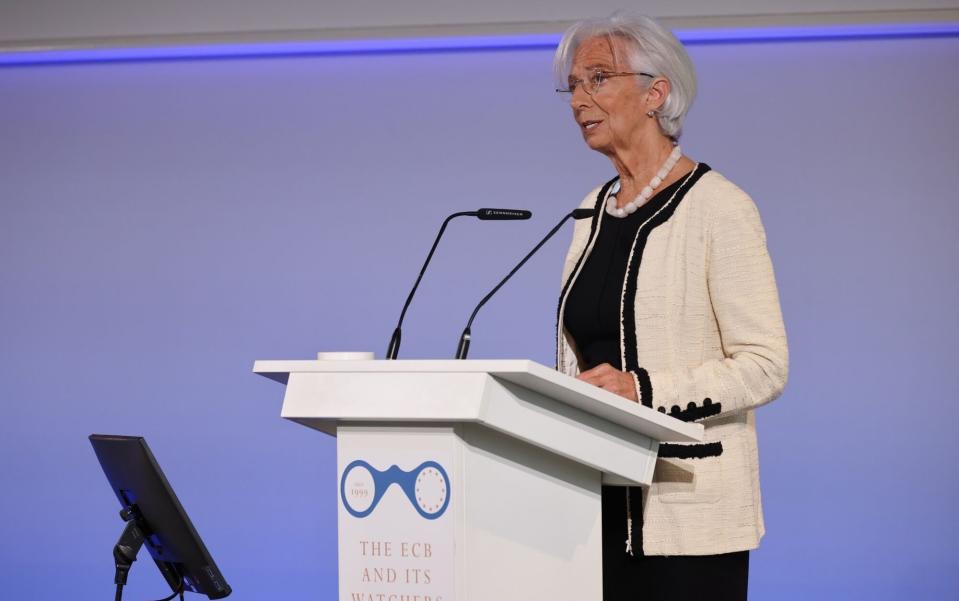
10:24 AM GMT
It’s harder to keep BBC impartial today, says director-general
BBC director-general Tim Davie has suggested the broadcaster’s impartiality has become harder to maintain due to the “polarisation” of public discourse.
Mr Davie was asked by the Culture, Media and Sport Committee if the BBC is biased following the Culture Secretary Lucy Frazer’s saying it was “on occasion”.
He said: “I am proud of our output under huge pressure, and I think that (if) we look at the data as well... overall we’re doing a good job in terms of delivering impartial coverage amidst enormous pressure.”
He added that the “polarisation in society is profound” and the corporation is among those that “steer the course amongst the noise” despite “the storms of social media” being “very demanding”.
Mr Davie also said he “worries” about public institutions losing trust in the current social climate.
He added: “I believe we are impartial and we’re doing a good job, but I do not want for a minute... to be defensive or complacent about that. I think there’s lots of work to do.”
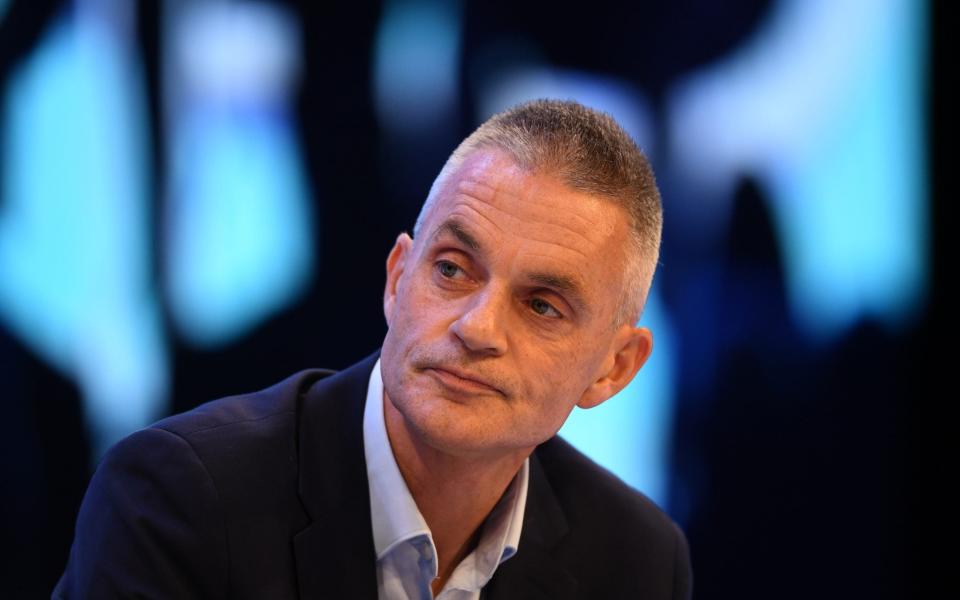
10:15 AM GMT
Rental prices surge 9pc, new ONS data show
The average cost of renting a private property increased by 9pc in the year to February, according to the ONS.
This was an increase from 8.5pc in the 12 months to January, as statisticians used new data for the first time.
Meanwhile, average UK house prices decreased by 0.6pc in the 12 months to January, and were down by 1.5pc in England to £299,000, down 0.8pc in Wales to £213,000, and increased 4.8pc in Scotland to £190,000.
Average house prices increased by 1.4pc to £178,000 in the year to the fourth quarter of 2023 in Northern Ireland.
Matt Corder, deputy director for prices at the ONS, said:
Today we’ve published our first set of new rent figures, which utilise more data than before, allowing us to show both rental price levels and growth on a comparable basis, right down to local authority area.
These new data show that UK rental prices continued to grow strongly in the year to February, at their highest annual rate since records began in 2015.
Average UK house prices decreased by 0.6% in the 12 months to January 2024 (provisional estimate) to £282,000 🏡
This is up from a decrease of 2.2% (revised estimate) in the 12 months to December 2023.
➡️ https://t.co/Q54iZjdn0u pic.twitter.com/LOoUWWk4ST— Office for National Statistics (ONS) (@ONS) March 20, 2024
09:54 AM GMT
Bank of England running out of reasons not to cut rates, say economists
The Bank of England is under increasing pressure to cut interest rates after the steepest fall in inflation since 1978, according to economists.
Policymakers are expected to hold interest rates steady at their 16-year highs of 5.25pc tomorrow, despite inflation falling to its lowest level September 2021 at 3.4pc.
Julian Jessop, economics fellow at the Institute of Economic Affairs think tank, said:
The latest drop in inflation demonstrates the urgent need for the Bank of England to begin cutting rates.
The renewed slowdown in the headline rate - to 3.4pc in February - paves the way for annual inflation to fall below the 2pc target in April when the new Ofgem cap on energy bills kicks in.
Indeed, the consumer price index has been little changed since September, meaning that shorter-term measures of inflation are now close to zero. This is consistent with the sharp slowdown in the growth of money and credit.
Some underlying measures are still high, notably annual services inflation which is running at 6.1pc. But with plenty of evidence that the labour market is cooling, and inflation expectations are dropping, fears of a ‘wage-price spiral’ should fade too.
By far the bigger risk is that having been too slow to act when inflation was taking off, the Bank of England will now be even slower to respond on the way down.
09:42 AM GMT
Heathrow Airport passenger charges poised for reduction
Heathrow Airport’s passenger charges for the next two years could be cut by 6pc, a regulator has announced.
The Civil Aviation Authority (CAA) said it is proposing to adjust the caps on charges it previously set for 2025 and 2026 following a “re-examination” of its decision in March last year.
Charges are paid by airlines but are generally passed on to passengers in air fares.
If the proposals are implemented following a six-week consultation, average charges per passenger would be cut by around £1.52 to £23.72 in 2025, and by £1.58 to £23.70 in 2026.
This comes after the Competition and Markets Authority ordered the CAA to reconsider some aspects of its decision.
The CAA looked again at the airport’s revenues during coronavirus lockdowns, as well as the impact of its debt and pension costs.
The average charge per passenger was £31.57 in 2022 and 2023, and was forecast to be £25.43 this year.
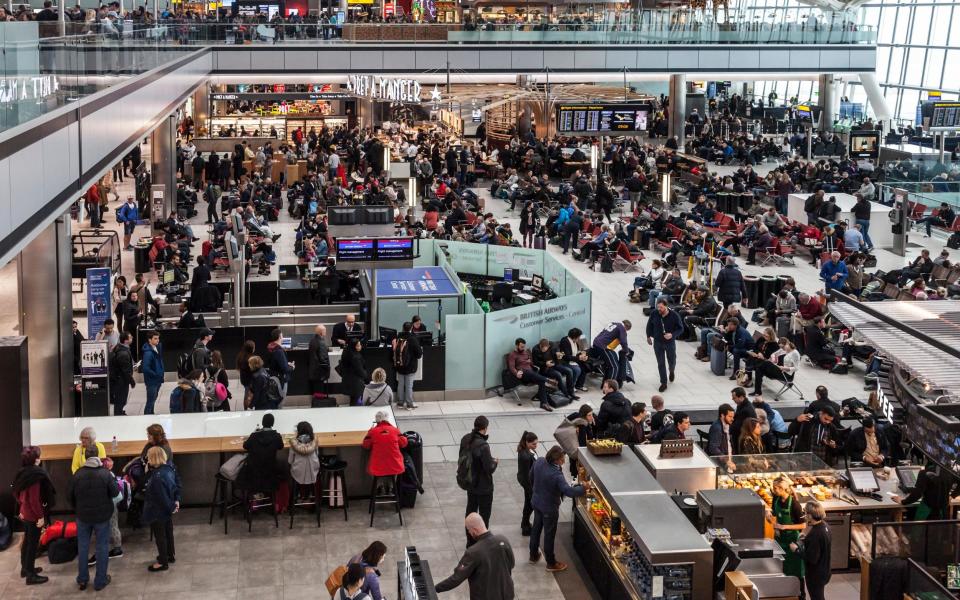
09:34 AM GMT
Oh crumbs! Greggs stores closed amid payments outage
Greggs said it is unable to take cash or card payments, which has forced the closure this shop in Sheffield.
A sign on the door reads:
We currently have an issue with our tills which means we can’t take cash or card payments right now.
Our IT colleagues are working hard to get the issue sorted as soon as they can.
We’re really sorry for any inconvenience caused.

09:27 AM GMT
Traders wary of changes to Fed interest rate outlook
A major factor holding markets back from big moves after the sharp fall in UK inflation is the Federal Reserve’s interest rate policy meeting later today.
Fed decision-makers are widely expected to hold interest rates at a two-decade high, but traders will also be watching the “dot plot” of projections for how many cuts they see this year.
At the turn of 2024, markets had factored in up to six cuts, but a spate of strong data - particularly pointing to sticky inflation - has forced investors to revise that down to three.
US inflation stands at 3.2pc, barely lower than the UK’s February reading of 3.4pc.
Although it is in line with the Fed’s December projection but there are worries policymakers could be spooked into lowering their outlook to just two rate cuts - or 50 basis points.
Some market participants are also concerned that the first reduction - anticipated by many to come in June - could be pushed back.
Citigroup’s Veronica Clark warned:
It would only take two participants to move their dots to move the median to 50 basis points of cuts for this year.
We are thinking the Fed is OK with where they are now. But it is definitely the risk.
09:22 AM GMT
Greggs closes stores after IT glitch
Greggs stores across the UK have been hit by technical issues preventing them from accepting payments, forcing some to close.
IT outages affected the bakery chain’s branches this morning, causing some to put up temporary “closed” notices on their doors.
Others asked customers to place orders outside using the Greggs mobile app before food could be given to them.
Stores in cities including London, Manchester, Cardiff and Glasgow have reportedly been affected, with customers unable to purchase items.
A Greggs spokesperson said:
We are currently experiencing issues accepting payments in our shops.
We are working to resolve this as soon as possible.
On Saturday, outages to payment systems prevented Sainsbury’s and Tesco stores across the country from accepting contactless card payments and issuing home deliveries.
On Friday, McDonald’s suffered a “global technology system outage” which the fast-food chain said had not been directly “caused by a cybersecurity event”.
Greggs operates more than 2,450 shops across the UK.
@O2 my store is temporarily closed so please reactive my voucher pic.twitter.com/SmfqL4MBkT
— Harwinder (@hkambo1) March 20, 2024
09:07 AM GMT
Mike Ashley to advise Hornby after building stake in model maker
Retail tycoon Mike Ashley is to advise Hornby after building up a stake in the historic model train business.
The toy company told shareholders that the Frasers Group founder and majority owner has “entered into a consultancy arrangement” with the business.
“Mike will be available to support Olly Raeburn, chief executive officer of Hornby, and the wider business, particularly in relation to systems, operations, logistics and, where relevant, broader matters of strategy,” it said.
Hornby added that there will be no payment to Mr Ashley’s business for the consultancy services.
Shareholders will hope the move can help spark a financial turnaround at Hornby, after it posted a £5.1m pre-tax loss in the half-year to September.
Shares in the company slipped to their lowest price for decades at the end of last year as a result - but climbed 7pc following the announcement of Mr Ashley’s involvement.
Mr Ashley’s Frasers Group significantly increased its stake in Hornby in February this year, driving a jump in the firm’s share valuation.
The Sports Direct owner acquired more than 11m shares in Hornby to take its stake in the the Margate-based company to 8.9pc.
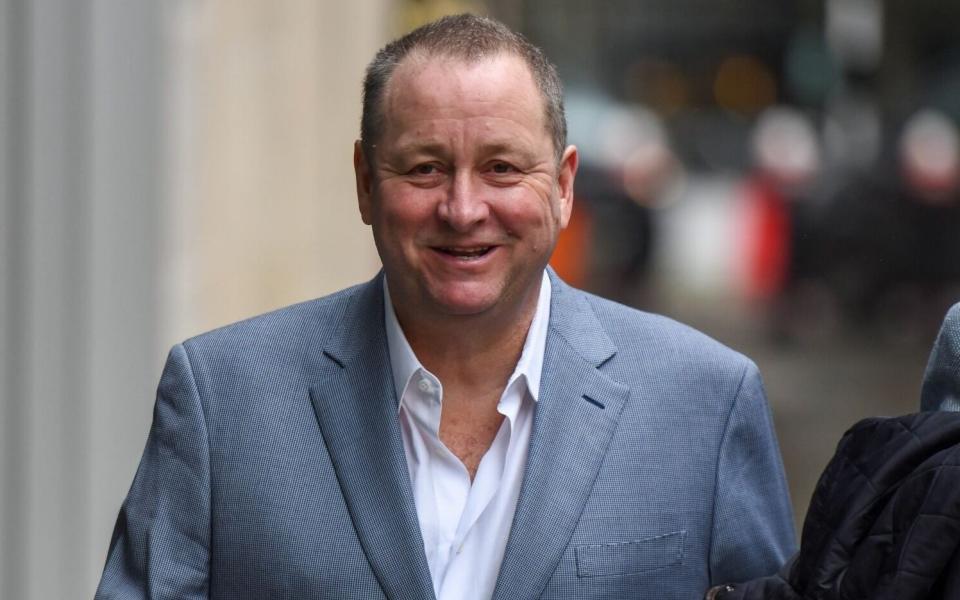
08:53 AM GMT
FTSE 100 falls ahead of interest rate decisions
The FTSE 100 opened lower despite the sharp fall in inflation as investors remained cautious ahead of interest rate decisions by the Federal Reserve and the Bank of England.
The blue chip index slipped 0.1pc, as markets keenly awaited Fed decision that could potentially set the tone for global central banks.
The decline in inflation to 3.4pc in February led traders to increase bets on interest rate cuts in the summer, with rate-sensitive house builders rising as much as 0.9pc.
The worst performer on the FTSE 100 was Burberry, which dropped 5.2pc following fall in European luxury goods group Kering, which warned about a potential sales drop in the first quarter.
The mid cap FTSE 250 was up 0.1pc, with Johnson Matthey among the top performers.
The chemicals company jumped 6.4pc after announcing that it will sell its medical device components business to Montagu Private Equity for $700m (£551m).
08:26 AM GMT
Interest rate cuts on track for the summer, say economists
As inflation fell sharply to 3.4pc in February, Suren Thiru, economics director at ICAEW, said:
This notable decline is further evidence that the UK is fast approaching the finish line in its battle against surging inflation.
The last mile of this inflation marathon should be the easiest with lower energy bills, following the cut in Ofgem’s energy price cap, likely to drag the headline rate back to the Bank of England’s 2pc target in April.
With the lagged impact of earlier interest rate rises and a weak economy likely to constrain price pressures throughout this year, the Bank of England’s forecast that inflation will start drifting higher later this year looks excessively downbeat.
While interest rates will be kept on hold on Thursday, these figures may drive a more dovish vote split and meeting minutes as policymakers set the scene for summer rate cuts.
08:21 AM GMT
Prudential ‘increasingly confident’ of hitting three-year growth targets
In corporate news, Prudential revealed a rise in profits for the past year as it hailed “early progress” in its recent growth strategy.
The insurance and asset management giant said it is “increasingly confident” it will now achieve growth targets for 2027, which it set out following a strategy review last year.
It came as the company revealed that adjusted operating profits grew by 6pc to $2.9bn (£2.3bn) in 2023, compared with the previous year.
Chief executive Anil Wadhwani cheered the performance as “a very strong set of results while operating in a challenging macro environment”.
The London and Hong Kong-listed group said it benefited from positive policy sales in Asia and Africa over the year.
This helped to drive a 45pc increase in new profit during the year, bosses said.
However, shares fell 0.4pc in early trading.
08:12 AM GMT
Britain to hit 2pc inflation target by April, say economists
Britain is on track to hit the Bank of England’s target to reduce inflation to 2pc by April, according to economists.
The consumer prices index (CPI) fell to 3.4pc in February, down from 4pc the previous month, according to the Office for National Statistics (ONS).
The decline in price rises was sharper than analysts’ predictions of a fall to 3.5pc and is the lowest reading since September 2021, when inflation stood at 3.1pc.
The decline in CPI was also the fastest annual fall in inflation since 1978 and leaves Britain within touching distance of inflation in the US, which stands at 3.2pc.
James Smith, research director at the Resolution Foundation, said: “The fastest fall in inflation for almost half a century will be welcome news for households – with food inflation falling to its lowest rate in two years – and the Bank of England, as inflation looks on track to hit its 2pc target in April.
“Services inflation also continues to fall which, coupled with falling nominal wage growth, should give monetary policy makers more confidence that wage pressures on inflation are starting to ease.”
Suren Thiru, economics director at ICAEW, said: “The last mile of this inflation marathon should be the easiest with lower energy bills, following the cut in Ofgem’s energy price cap, likely to drag the headline rate back to the Bank of England’s 2pc target in April.”
The decline in inflation has bolstered hopes that the Bank of England will cut interest rates in the summer, boosting household incomes ahead of an election.
Policymakers are widely expected to keep interest rates on hold when they announce their next interest rate decision on Thursday.
Money markets boosted bets on rate cuts following the ONS figures, with Neil Birrell of Premier Miton adding: “Rate cut expectations for the middle of the year are well founded.”
08:03 AM GMT
UK markets decline despite inflation fall
Stock markets in London were muted as trading began despite the sharp fall in inflation.
The FTSE 100 fell 0.1pc to 7,731.58 while the domestically-focused FTSE 250 dropped 0.2pc to 19,446.43.
08:00 AM GMT
Reeves: Mortgage payments are going up
Shadow chancellor Rachel Reeves has pointed to rising mortgage payments after the latest inflation figures:
After fourteen years of chaos and uncertainty under the Conservatives, working people are worse off.
Prices are still rising in the jobs, the tax burden is the highest it has been in seventy years and mortgage payments are going up.
It's time for an election.— Rachel Reeves (@RachelReevesMP) March 20, 2024
Panmure Gordon chief economist Simon French also pointed to rising mortgage costs:
And for some - depending on personal expenditure basket - the experience of UK prices remains very different to the headline rates. Mortgage interest up 36% YoY; household energy costs down 18% YoY. https://t.co/ukMpI7c7Fs pic.twitter.com/yYoL8R7owq
— Simon French (@Frencheconomics) March 20, 2024
07:50 AM GMT
Food inflation falls to lowest level since January 2022
Inflation has fallen more than expected but had remained firm at 4pc in January, compared to 4pc in December, which was an increase from 3.9pc in November.
However, food inflation fell to its lowest rate since January 2022, which the British Retail Consortium said was a result of retailers continuing “to deliver the best service to their customers and communities”.
Kris Hamer, director of insight at the British Retail Consortium, said:
After a rocky start to 2024, inflation is once again on its way down.
February’s figures were driven by falls in food and clothing and footwear as well as cheaper energy prices.
While today’s inflation figures will be good news for consumers, Government must not be complacent.
Significant costs on the horizon may put renewed pressure on overall inflation in the near future; these include a 6.7pc rise in business rates, and reforms to the packaging levy and electrical takeback schemes, all in the context of the biggest rise to NLW on record.
This will limit investment and drive up costs at a time when many families are still facing a higher cost of living.
07:45 AM GMT
Traders increase bets on interest rate cuts
Money markets have boosted bets on the Bank of England cutting interest rates this summer after inflation fell further than expected to 3.4pc in February.
Traders have priced in 71 basis points of interest rate reductions by the end of the year, nearly equivalent to three quarter of a point cuts.
They had priced in 66 basis points of cuts before the ONS inflation figures were published.
An interest rate cut is priced in by August, but traders have increased bets on the potential for a reduction in June.
Neil Birrell, chief investment officer at Premier Miton, said:
Headline inflation is on track to be close to the Bank of England’s target later in the year, and encouragingly, core inflation was lower than anticipated as well.
This won’t be enough for a cut in interest rates in the very short term but does give backing to the view that the UK economy is performing.
Rate cut expectations for the middle of the year are well founded.
07:39 AM GMT
Pound flat as inflation falls
The pound has remained flat against the dollar in early trading, suggesting the steep decline in UK inflation had already been priced in by the markets.
Sterling was little changed at $1.27, although it was 0.1pc lower against the euro at 85p amid hopes that falling inflation will pave the way for interest rate cuts this summer by the Bank of England.
07:29 AM GMT
Inflation falls across several sectors, says ONS
The fall in inflation was widespread in February, the ONS data show.
Food inflation declined from 7pc to 5pc, while restaurants and hotels inflation dropped from 7pc to 6pc. Communication inflation dipped from 8.2pc to 5.6pc.
Paul Dales, chief UK economist at Capital Economics, said: A lot of this was due to more normal changes in prices this February following unusually large price rises last February.”
07:27 AM GMT
Inflation will fall towards 1pc, economists predict
Economists have predicted the latest inflation figures mean the Bank of England will begin cutting interest rates this summer and could reduce them to 3pc next year.
Paul Dales, chief UK economist at Capital Economics, said the consumer prices index reading of 3.4pc “probably won’t make the Bank of England sound any more dovish when it leaves interest rates at 5.25pc tomorrow”.
However, he said inflation will fall below 2pc in April and then ease towards 1pc, which suggests the policymakers “may have to start cutting rates in the summer and reduce them to 3pc next year”.
He added:
We think services and overall inflation will soon fall much faster than the Bank of England expects.
In April, we forecast CPI inflation will plunge to 1.7pc (BoE 1.9pc) and, more strikingly, while the Bank thinks it will rebound to 2.7pc by August, we think it will fall close to 1pc.
From April, CPI inflation in the UK will be comfortably below inflation in the US and euro-zone.
That may prompt the Bank of England to starting cutting interest rates in the summer (perhaps in June) and inflation of 1pc may force it to reduce rates to 3pc next year rather than to 4pc as expected by investors.
07:18 AM GMT
Sunak: Good news for you, your family and the country
Rishi Sunak has sent out a victorious sounding tweet as inflation fell further than expected to 3.4pc.
Good news for you, your family and the country. pic.twitter.com/6qujvqOQVs
— Rishi Sunak (@RishiSunak) March 20, 2024
07:17 AM GMT
Core inflation falls further than expected
Core inflation, which strips out volatile food and energy prices, also fell more than expected to 4.5pc in February, according to the ONS.
This was down from 5.1pc in January and lower than the 4.6pc predicted by economists.
The closely-watched annual rate of services inflation - the dominant sector in Britain’s economy - eased from 6.5pc to 6.1pc.
However, this was slightly less than analyst forecasts of a fall to 6pc.
⚠️ UK core CPI 4.5% YoY (missing already soft consensus). Was an important CPI print given Feb is usually very hot. But no signs of this. Trimmed mean CPI for Feb was considerably softer than last 2 years (in line with historic norms). BoE can ease up on "persistence" fears $GBP pic.twitter.com/Imz7Fem0Sa
— Viraj Patel (@VPatelFX) March 20, 2024
07:10 AM GMT
Hunt: Inflation’s fall sets the scene for better economic conditions
As inflation fell more than expected, Chancellor Jeremy Hunt said:
The plan is working. Inflation has not just fallen decisively but is forecast to hit the 2pc target within months.
This sets the scene for better economic conditions which could allow further progress on our ambition to boost growth and make work pay by bringing down national insurance as we work towards abolishing the double tax on work - but only if we can do so without increasing borrowing or cutting funding for public services.
07:08 AM GMT
Food prices drive fall in inflation, says ONS
ONS chief economist Grant Fitzner said:
Inflation eased in February to its lowest rate for nearly two and a half years.
Food prices were the main driver of the fall, with prices almost unchanged this year compared to a large rise last year, while restaurant and cafe prices also slowed.
These falls were only partially offset by prices rises at the pump and a further increase in rental costs.
07:05 AM GMT
Inflation falls more than expected in boost for Sunak
Inflation fell more than expected last month to its lowest level in nearly two and a half years, official figures show, in a boost for Rishi Sunak before a general election expected in the autumn.
The consumer prices index (CPI) fell to 3.4pc in February, down from 4pc the previous month, according to the Office for National Statistics (ONS).
The decline in price rises was sharper than analysts’ predictions of a fall to 3.5pc and is the lowest reading since September 2021, when inflation stood at 3.1pc.
ONS chief economist Grant Fitzner said: “Food prices were the main driver of the fall, with prices almost unchanged this year compared to a large rise last year, while restaurant and cafe prices also slowed.”
The decline in inflation has bolstered hopes that the Bank of England will cut interest rates in the summer, boosting household incomes ahead of an election.
Policymakers are widely expected to keep interest rates on hold when they announce their next interest rate decision on Thursday.
In the year to February 2024:
▪️ Consumer Prices Index including owner occupiers' housing costs (CPIH) rose by 3.8%, down from 4.2% in January.
▪️ Consumer Prices Index (CPI) rose by 3.4%, down from 4.0% in January.
➡️ https://t.co/ObDycx6pDz pic.twitter.com/f9fuw78dFR— Office for National Statistics (ONS) (@ONS) March 20, 2024
07:00 AM GMT
Good morning
Thanks for joining me. Inflation fell more sharply than expected last month according to the Office for National Statistics.
The consumer prices index fell to 3.4pc in February compared to 4pc in January and December.
5 things to start your day
1) Future of triple lock depends on public sector spending cuts, says Hunt | Tories’ pension pledge ‘under review’ amid severe pressure on state finances
2) Childcare tax trap is ‘absolutely insane’, says IFS | Financial penalty for parents earning over £100k does not make work pay, experts warn
3) How a shoplifting crimewave is forcing the retreat of self-checkout | Retailers are questioning the use of unmanned scanners as the cost of theft rises
4) Amanda Staveley’s Huntington’s claim is ‘puzzling’, says judge | Financier says her disease was ‘exploited’ during negotiations in £36m bankruptcy battle
5) Tell taxpayer the true cost of Body Shop collapse, urge MPs | Former staff are being told to seek redundancy payments from Government-backed scheme
What happened overnight
Asian markets were mostly higher ahead of expected guidance by the Federal Reserve on the timing of its cuts to interest rates.
Japan’s markets were closed for a holiday. On Tuesday, the Bank of Japan hiked its benchmark interest rate for the first time in 17 years, raising the rate to a range of zero to 0.1pc from minus 0.1pc.
The pound and the US dollar rose against the Japanese yen after the BOJ decision suggested that a wide gap between interest rates with Japan will persist for the foreseeable future.
The Hang Seng in Hong Kong edged 0.2pc higher to 16,559.77, while the Shanghai Composite index was up 0.5pc at 3,076.67.
China left its benchmark lending rates unchanged on Wednesday, as expected. While the economy is showing signs of improvement, the property market remains precarious.
Elsewhere, Australia’s S&P/ASX 200 added 0.3pc to 7,725.40, while the Kospi in South Korea advanced 1.1pc to 2,685.87, Taiwan’s Taiex gained 0.1pc.
In America, the S&P 500 rose to a record on Tuesday as Wall Street made some of its final moves before hearing what the Federal Reserve will do with interest rates.
The benchmark index rose 0.6pc, to 5,178.51 and topped its all-time high set last week. The Dow Jones Industrial Average jumped 0.8pc, to 39,110.76, and the Nasdaq Composite index gained 0.4pc, to 16,166.79.
The yield on 10-year US Treasury bonds dipped to 4.29pc from 4.33pc late on Monday.

 Yahoo Finance
Yahoo Finance 